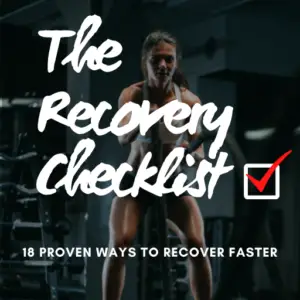“I’m a bad sleeper.” It’s easy to blame poor sleep on factors outside our control. Things like genetics, a partner who snores, or being a “night owl.”
These variables play an undisputed role in poor sleep. So does sleep hygiene, the daily habits and choices that determine our sleep quality.
The best sleep tips for bad sleepers target common sleep hygiene mistakes. But first, why is sleep so important?
Why Sleep Matters
Most of us don’t sleep the recommended 7-9 hours every night. Often our sleep quality isn’t great either.
And “junk sleep,” as Ray Donovan terms it in the mattress commercials, is a nightmare for health. Why?

Poor sleep makes us eat more junk food because our food cravings go crazy. Leptin and ghrelin, appetite hormones, don’t regulate cravings as well when we’re sleep-deprived.
Sleep deprivation impairs our focus, patience, and cognition. Subsequently, work and relationships suffer.
Insufficient sleep is linked to chronic pain. Our mind and body don’t have enough time to repair themselves and dissipate stress.
Poor sleep is cyclical. One bad night can easily become five in a row. Fatigue leads us to drink more caffeine, exercise less, and then sleep worse the next night.
The Wrong Way
I’m no sleep superhero. Some days my sleep is dialed in. Other days, my choices during the day leave me tossing and turning at night.
Like the time I watched “Get Out,” thinking it was a comedy. Nightmares jarred me awake in a cold sweat.
When I’m not accidentally watching a horror film and waiting for the funny part, other behaviors hinder my sleep, too:
- Scrolling through Instagram and wishing my life looked that good
- Drinking delicious pre-workout too close to bedtime
- Not exercising or getting outside in the sun
- Choosing TV and Youtube over conversations with my wife and cuddles with my baby
- Worrying about things I can’t control (war, the stock market, politics, interest rates)
As I’ve written in this post, Does Stress Cause Pain?, my neck hurts when I don’t sleep enough. So I’d be wise to take heed of my own sleep tips for bad sleepers. Because I’m a poor sleeper, too.
A Better Way
Great sleep starts in the morning. Waking early ensures I’m sleepy by bedtime.
Once I roll out of bed, I grab caffeine and go outside. Or at least under bright lights. Sunlight jolts the brain awake, even on cloudy days.
During the day, lifting heavy or training for a 10k run tires me out. And I sleep better when I eat healthy – instead of polishing off a liter of ice cream before bed (as fun as that sounds).
I also sleep better when I wind down before bed. Great sleep is one of the benefits of bathing or showering before bed. Dim lights, white noise and cuddles with baby Forsythe help me unwind after a busy day.
Here are 3 key sleep tips for bad sleepers (and ideas for the rest of us):
1) Make a Routine
My baby boy needs a bedtime routine so his brain knows when it’s time to sleep. So do I, and so do you.
Take a few minutes before bed to meditate, practice yoga or do deep breathing exercises.
As much as this suggestion pains me, it’s also a perfect time to do static stretching. You can also climb into your PJs and read a boring book. I can recommend several from my high school reading list.
2) Sleep at Night
Unless you have to work the night shift, sleep at night. The human body responds to sunlight. You’re built to rise with the sun and go to bed when it’s dark.

Staying awake too late screws up your body’s internal clock, disrupting your circadian rhythm that regulates sleeping and waking.
Unfortunately, overnight shift work is linked to chronic health problems like heart disease, diabetes and obesity.
The last of the sleep tips for bad sleepers isn’t one you want to read. But you’re still reading, so here it goes…
3) Move Your Phone
Keeping your phone next to your bed isn’t doing your sleep any favors. Blue light from devices suppresses melatonin release and makes you more alert. Plus, being “on-call” at all hours isn’t conducive to deep sleep.
Sleep is when your mind and body need to unplug, rest and recover.
Your phone’s Do Not Disturb setting is your best friend. Try sleeping with your phone out of the room, or at least several feet out of reach.
You’re less likely to doom-scroll through Twitter if you can’t fall asleep. And you won’t check texts, email and social media throughout the night.
Or you can take more drastic measures…

Didn’t like this list of sleep tips for bad sleepers? You won’t like these 3 unpopular sleep tips either.
Bottom line: Great health starts with taking your sleep seriously.
For more evidence-based sleep tips, check out my mega-guide to better sleep:
28 Tips for The Best Sleep of Your Life
Readers: Are you a “bad sleeper”? How much sleep do you need each night in order to feel rested? How does sleep hygiene affect your shut-eye? Share your thoughts in the comments.
For more evidence-based health tips, join the free Facts & Physio Newsletter. Plus, get The Recovery Checklist when you sign up.

